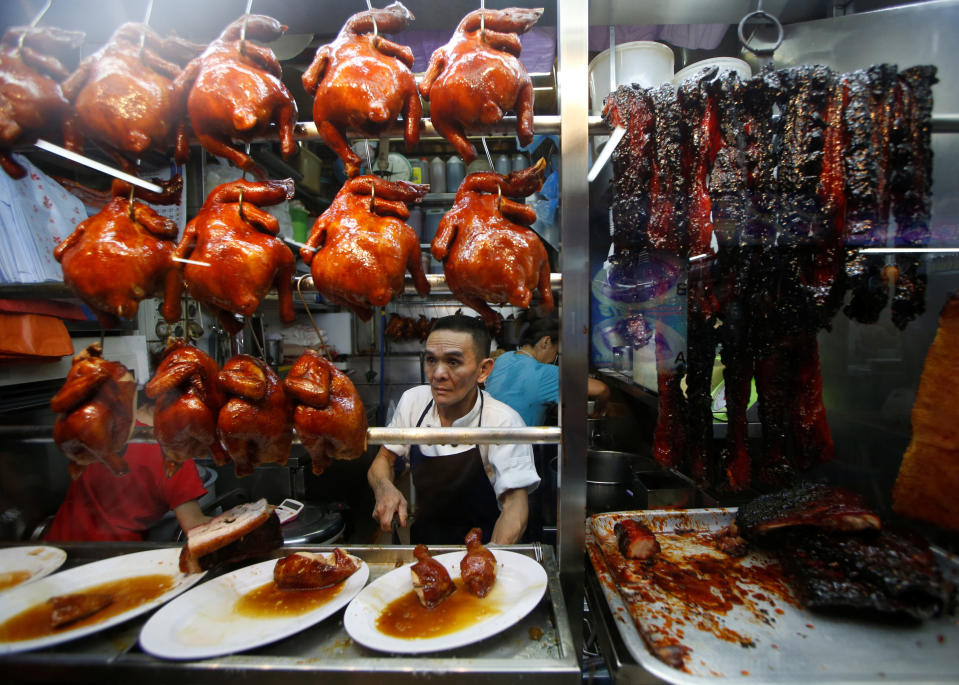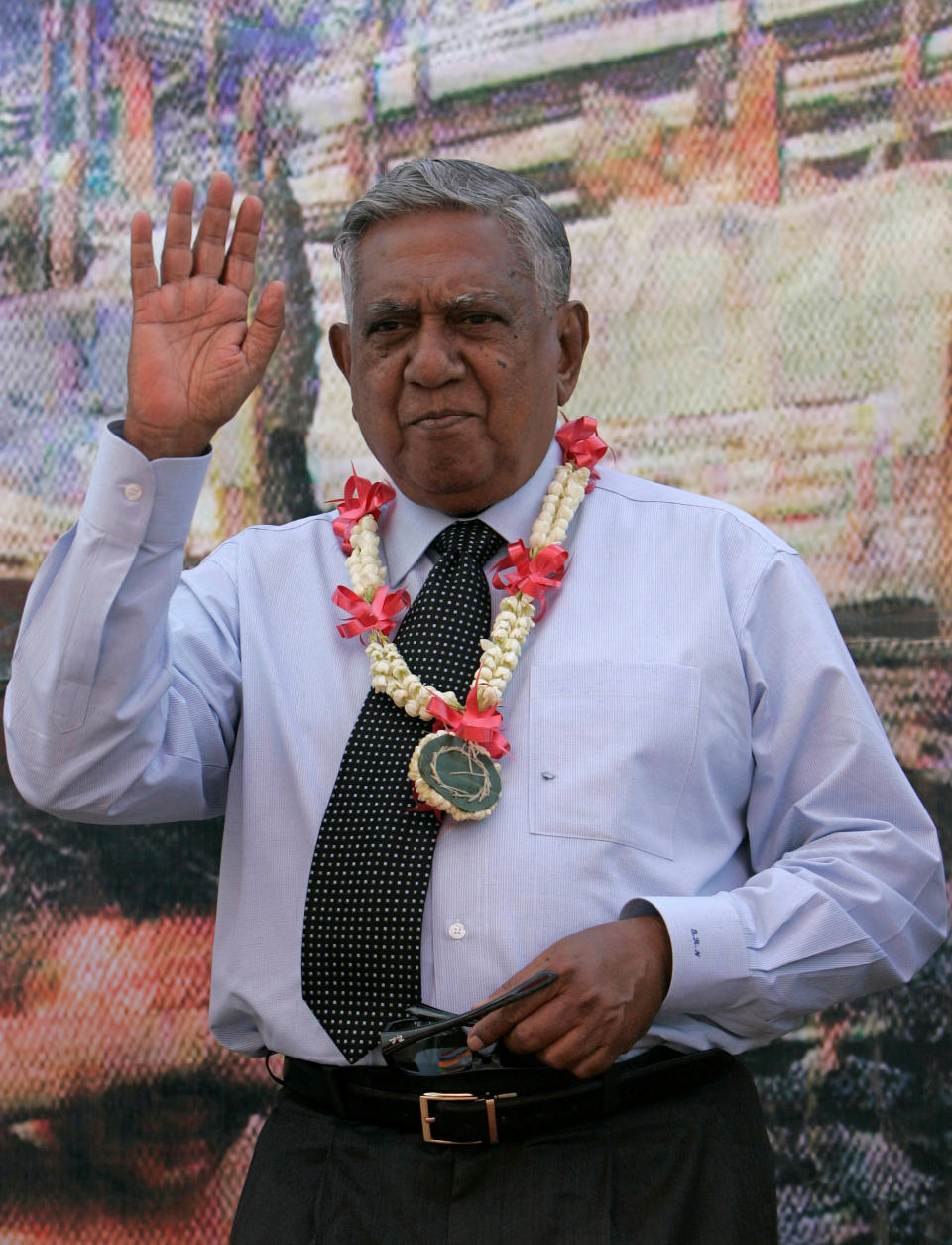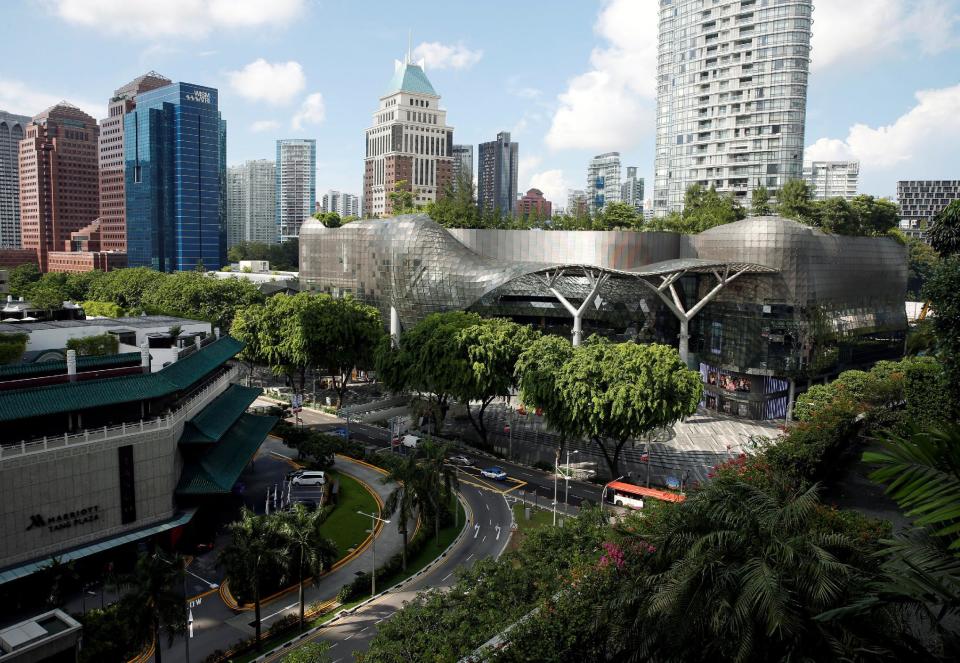Top 10 Singapore headlines of 2016
As 2016 nears its end, Yahoo Singapore looks back at some of the year’s top headlines.

10. First Michelin-starred hawkers
Hill Street Tai Hwa Pork Noodle and Hong Kong Soya Sauce Chicken Rice & Noodle made Singapore history in July after becoming the first two hawker stalls in the world to receive a prestigious Michelin star.
The award turned them into overnight stars as long queues formed the next day in front of their stalls, located respectively at Crawford Lane and Chinatown Food Complex, with some customers willing to wait over two hours.
Riding on this demand, Chan Hon Meng, owner of Hong Kong Soya Sauce Chicken Rice & Noodle, entered a partnership with multinational Hersing Culinary.
In November, the partners opened a quick-serving restaurant named Hawker Chan, and shared that they were considering regional and global expansion.
9. Death of two SMRT employees at work
Two SMRT staff were killed when they were knocked down by an oncoming train near Pasir Ris station on 22 March.
Nasrulhudin Najumudin, 26, and Muhammad Asyraf Ahmad Buhari, 24, were carrying out maintenance work on the track, along with 13 other staff, when the accident occurred.
On 1 December, SMRT Trains was charged for failing to take measures to ensure the safety and health of its employees.
A director with SMRT as well as a former employee were also charged in relation to the accident. The company and the two accused will be back in court for a pre-trial conference on 30 December.
Hired in January 2016, both Nasrulhudin and Muhammad Asyraf were undergoing on-the-job training and were about 150 metres away from the station when the accident occurred.
8. Standard Chartered bank robbery
In July, a 26-year-old Canadian allegedly pulled off the first bank robbery in Singapore in 12 years.
Using just a piece of paper to indicate his intention, David James Roach reportedly managed to rob $30,000 from a Standard Chartered Bank branch in Holland Village on 7 July. The note read, “This is a robbery, I have a weapon, give me money, don’t call the police.”
On the same day the suspect absconded to Bangkok, Thailand, where he was arrested by the Royal Thai Police.
Bank robberies are far and few in Singapore. It was last successfully attempted in December 2004 when a man robbed a West Coast POSB Bank of $37,000.
Roach remains in custody in Bangkok. Thai authorities have so far refused to extradite him.

7. Former President S. R. Nathan’s death
Sellapan Ramanathan, popularly known as S. R. Nathan, died on 22 August. He was Singapore’s longest serving president, holding the office from 1999 to 2011.
The Republic’s second elected president had a long and storied career as a medical social worker, civil servant and diplomat. Diplomats and former colleagues told Yahoo Singapore anecdotes illuminating Nathan’s pioneer role at the Foreign Ministry.
Nathan is perhaps best known for his role in resolving the Laju incident of 31 January 1974, when terrorists attacked an oil refinery complex on Pulau Bukom and took several civilian hostages.
As then-head of the Security and Intelligence Division (SID) at the Ministry of Defence, Nathan was among a group of officials who volunteered to be hostages in exchange for the safe return of the civilians.
6. MP David Ong’s resignation and the Bukit Batok by-election
In an eventful year for the political scene, the resignation of Bukit Batok Member of Parliament David Ong completely blindsided Singaporeans.
On 12 March, PM Lee announced that Ong had resigned due to a “personal indiscretion”. This triggered a by-election, which was contested by former Aljunied GRC candidate Murali Pillai, and Singapore Democratic Party (SDP) chief Chee Soon Juan.
It was Chee’s second attempt in less than a year at gaining a parliamentary seat, after running unsuccessfully as a candidate for the Holland-Bukit Timah GRC. Prior to the 2015 general election, he had not run for office since 2001 thanks to his status as an undischarged bankrupt, following defamation lawsuits.
The campaign was marked by harsh attacks on Chee from People’s Action Party heavyweights, including Lee and Minister for Culture, Community and Youth Grace Fu.
The SDP also took issue with much of the mainstream media’s reporting on the by-election, accusing them of a pro-establishment bias.
PAP candidate Murali eventually prevailed by capturing 61.2 per cent of the vote at the by-election on 7 May.
5. PM Lee Hsien Loong’s fainting spell and Minister Heng Swee Keat’s stroke
In the space of four months, the Singapore government’s leadership succession plans were rocked by a series of health scares.
First, Finance Minister Heng Swee Keat, viewed by many as a potential successor to Prime Minister Lee Hsien Loong, suffered a stroke in May. While the now 55-year-old eventually recovered, the incident brought into question his ability to assume the top office.
Then at the National Day Rally in August, Lee himself suffered a fainting spell which raised the spectre of his previous health scares. The 64-year-old, who has been PM since 2004, has suffered from lymphoma and prostate cancer in the past.
A poll commissioned by Yahoo Singapore in September revealed that the popular choice of Singaporeans for next PM is Deputy Prime Minister Tharman Shanmugaratnam. Shortly after, the 59-year-old declared that he had no interest in the job.
4. Singapore’s Zika outbreak
As the world’s eyes turned to Brazil, where a Zika virus outbreak has been linked to cases of babies born with microcephaly, Singaporeans’ concerns grew as the Republic detected its first Zika patient in May and, subsequently, its first case of locally transmitted Zika in August.
Tropical Singapore’s vulnerability to mosquito-borne diseases showed as the number of Zika-infected people rose into the hundreds over a few weeks, with the largest cluster detected in the Aljunied Crescent/Sims Drive area. Now that the situation appears to have stabilised, the impact of the outbreak on the nation’s economy, and perhaps even its birth rate, remains to be seen.

3. Singapore’s slowing economy
Increasingly empty shopping malls and industrial spaces are among the signs of an ailing Singapore economy.
The latest data from the Ministry of Manpower (MOM) showed an overall unemployment rate of 2.1 per cent as of June – the highest mid-year rate since 2010. Meanwhile, mid-year job vacancy was at it lowest (2.4 per cent) since the 2009 recession.
During the first half of the year, 9,510 workers were made redundant, the highest number since 2009. Over the same period, some 42,000 businesses closed down – versus almost 49,000 for the whole of the previous year – sparking fears of an oncoming recession.
In late November, the Ministry of Trade and Industry (MTI) downgraded its 2016 growth forecast for Singapore to 1.0 to 1.5 per cent. In comparison, the country’s economy grew by 2.0 per cent in 2015, which was already its most lacklustre performance since 2009.
2. Elected presidency changes
The worst kept secret in Singapore politics was confirmed on 9 November, when Parliament voted to reserve the 2017 Presidential Election for Malay candidates.
The move disqualified former presidential candidate Tan Cheng Bock, 76, who had come within a whisker of claiming the presidency in 2011. In March this year, Tan had stolen a march on his potential rivals by declaring his candidacy for the 2017 election.
The move had been brewing ever since a Constitutional Commission was convened in January to review certain aspects of the Elected Presidency. It was alleged in certain quarters that the Commission’s real purpose was to eliminate Tan’s candidacy, a sentiment which later spawned the term ‘Tan Cheng Blocked’.
But Singaporeans have not quite seen the last of Tan Cheng Bock yet. Shortly after the November announcement, Tan told reporters that he would remain active in public life – and share his full thoughts on the changes to the EP in due course.
1. Joseph Schooling and Singapore’s first Olympic gold medal
It was a historic day for Singapore when Joseph Schooling won the Republic’s first-ever Olympic gold medal at the 2016 Olympic Games in Rio de Janeiro.
Singaporeans around the world held their breath as they watched the 21-year-old take to the pool on 12 August to compete in the 100m Men’s butterfly event – and they burst into celebration when he was first to reach the wall, setting an Olympic record of 50.39sec in the process. In a touch of sporting poetry Schooling also beat his idol, American swimming legend Michael Phelps.
Coming home to a hero’s welcome, the Singaporean champion was given an open-top bus parade, a standing ovation in Parliament, S$1 million under the Multi-Million Dollar Award Programme and was even offered a lifetime’s worth of free flights from AirAsia. As Schooling mania gripped the nation, the spotlight also fell on the young athlete’s plans for the future, his thoughts on the state of Singapore sports and his national service obligations.


